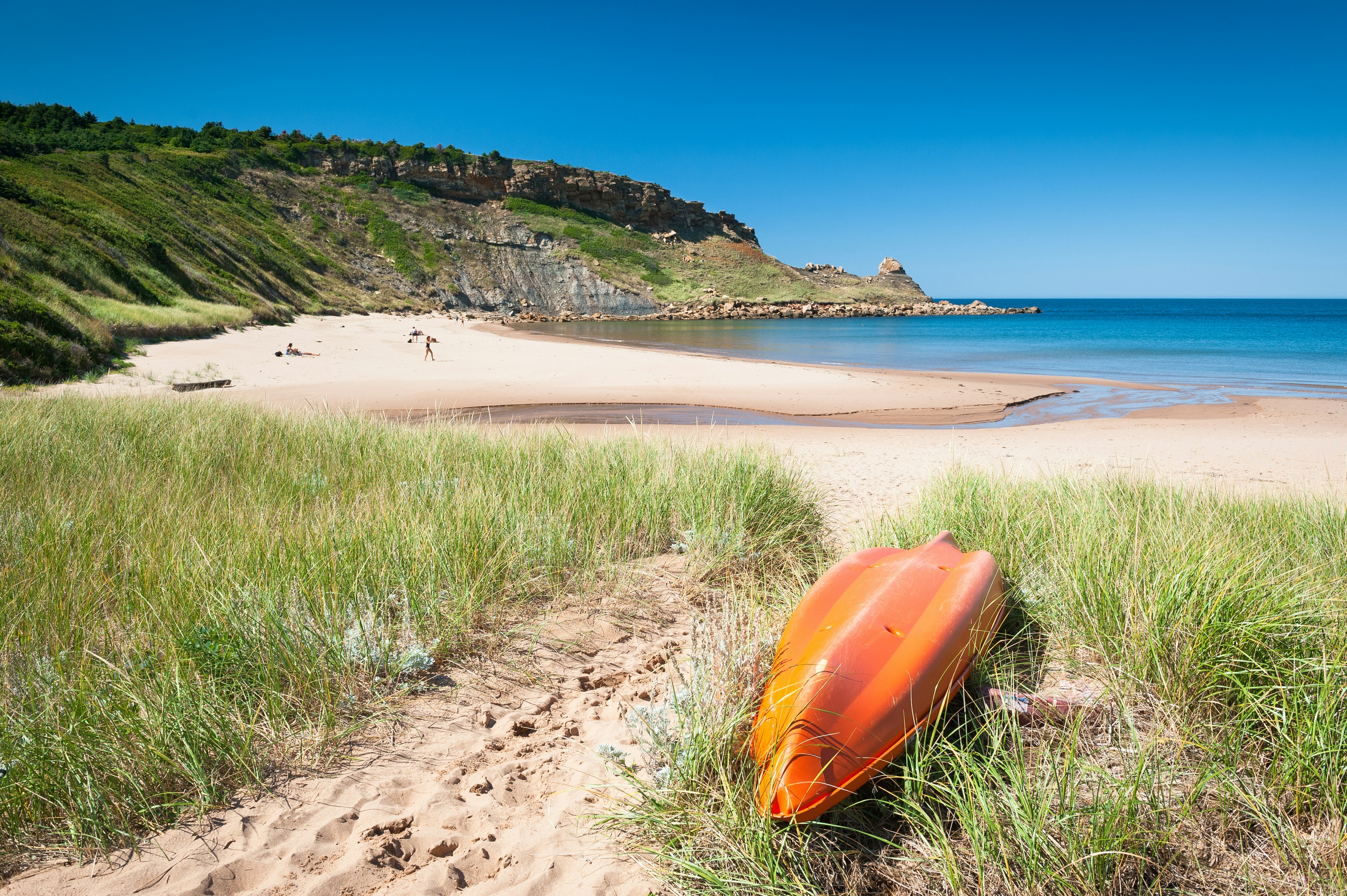
Leaf peeping and lobster: when should you visit Nova Scotia?

May 23, 2024 тЂ 4 min read

No matter when you visit, Nova Scotia is sure to enthrall you ТЉ Getty Images
Embraced by the North Atlantic, Nova Scotiaтs seasons, weather and attractions follow a predictable annual cycle. The icy Labrador ocean current that slips past the east coast tempers temperatures year-round, clearing summer skies, whipping up winter storms and delaying seasons by weeks.
The peak tourist season is July through August, with outdoor festivals, boat tours, museums and restaurants in full swing. The Halifax waterfront is the epicenter of tourism, almost always abuzz with activity. Increased demand translates to increased prices for accommodations, rental cars and activities. Food and drink prices remain steady year-round.
Most big attractions, museums, parks and guided activities arenтt yet fully open in late spring and gear down in early fall. These months, particularly the fall, are the best times for budget travelers. Come winter (November to April), many attractions either lock their doors or leave their grounds open and unserviced for occasional visitors. However, winter is changing in Nova Scotia т the weather is becoming ever milder and new activities are coming online. Prices rise and fall with the ebb and flow of the seasons.

July through August is the high season
Defined by high blue skies, warm breezes and a must-do list as long as a Nova Scotia silver sand beach, July and August are just so heavenly that most residents spend their summers at home. Meanwhile, tens of thousands migrate from beyond the province to their Nova Scotia summer cottage. The most popular accommodations т seaside cottages and glamping domes т are sold out many months in advance.
Summer in Nova Scotia sees the whales return to the Bay of Fundy and around Cape Breton, guaranteeing up-close encounters with the oceanтs great, gentle creatures on from ports like Tiverton and Pleasant Bay. Nova Scotia beaches are rarely overcrowded because of the sheer number and length of fine sand beaches where water temperatures often discourage swimming. Comfortable campgrounds and hiking trails through vast park wilderness tempt most people outside.
Seaside patios, craft beer taprooms, wineries and a frenzied events calendar attract road trippers and residents eager to explore. Festival season hits fever pitch, most of them outdoors and weekend-long, like the in Canso, the and Canada Day festivities on July 1 across the province.

September and October mean fall foliage and abundant harvests
Many residents will say that September and October are the best months in Nova Scotia. They welcome moderate temperatures as the summer heat is replaced by cool, less humid evenings. Things improve for visitors as well: prices drop, biting pests disappear, and forests glow with the changing colors, lighting up whole mountainsides on scenic drives like the Cabot Trail. Most attractions and accommodations remain open for what many consider a second tourist season. School and work pick up again, leaving the Nova Scotia playground to visitors.
Farmers markets overflow with the harvest. A legendary Nova Scotia figure, Howard Dill bred giant pumpkins weighing hundreds of pounds, and his legacy lives on in giant pumpkin weigh-offs and even giant pumpkin boat races (kids hollow them out and paddle them). Fall festivals keep the music flowing at the that fills Cape Bretonтs small halls with traditional fiddle tunes. In Halifax, movies take the spotlight at the.
November to March is animated by indoor festivals
Cold rains soaks Nova Scotia starting in November and snow isnтt far behind, although precipitation varies all the way to the end of March. Winter storms called norтeasters can blow in like icy, maniacal cyclones, shutting down nearly everything, blocking roads and sometimes knocking out electricity. But they do fill the few, small slopes and many hiking trails with snow for downhill and cross-country skiing in the calm between storms.
Watch for Nova Scotiaтs special events all winter long. The fills the full February calendar with community hall lobster suppers, cooking competitions and restaurant specials. The living history museum,, serves an old-fashioned Christmas dinner. Themed tours continue like тRaise Your Spirits,т a curated sampling of Compass Distillery booze barrel-aged inside the fortress atop in Halifax. Downtown Halifax is alive in winter when all the action shifts inside its many pubs, taprooms, restaurants, museums and music venues.

April to June means awakening nature
Nova Scotia awakens with the rush of spring, beginning in April. Weather varies from cold nights and the possibility of snow in early April to full-on summer conditions by the end of June. The landscape blushes in fresh shades of green, and the buds of maple, oak and other hardwood trees pop by mid-May. Wildflowers carpet the forest floor, making spring excellent for hiking. Private and public gardens are at their peak in June.
On the downside, blackflies begin their annual assault in the daytime, only to be replaced by annoying mosquitoes come June. Such pests are less of a problem on the coast where ocean breezes discourage them. Fog blankets the coastline this time of year, but visitors tend to find its gentle mystery an endearing feature.
Check out these stunning beaches in Nova Scotia
Plan your trip to Nova Scotia:
Save this list of the best things to do
Make sure you know these things before you go
These are the places you have to visit
Explore related stories





 Budget TravelCanada on a budget: how to stay, eat and frolic in the outdoors for less
Budget TravelCanada on a budget: how to stay, eat and frolic in the outdoors for lessApr 12, 2024 тЂ 6 min read
 Destination Practicalities12 things one local wants you to know about Canada
Destination Practicalities12 things one local wants you to know about CanadaApr 11, 2024 тЂ 6 min read
 Tips & AdviceHow to maximize your PTO and take the trip of a lifetime in 2024
Tips & AdviceHow to maximize your PTO and take the trip of a lifetime in 2024Jan 17, 2024 тЂ 8 min read

 Tips & AdviceSummer 2022: ЯуИлСљКЯВЪМДЪБПЊНБ travel experts offer incredible tips, insight and inspiration for your summer travel plans
Tips & AdviceSummer 2022: ЯуИлСљКЯВЪМДЪБПЊНБ travel experts offer incredible tips, insight and inspiration for your summer travel plansMay 26, 2022 тЂ 18 min read
